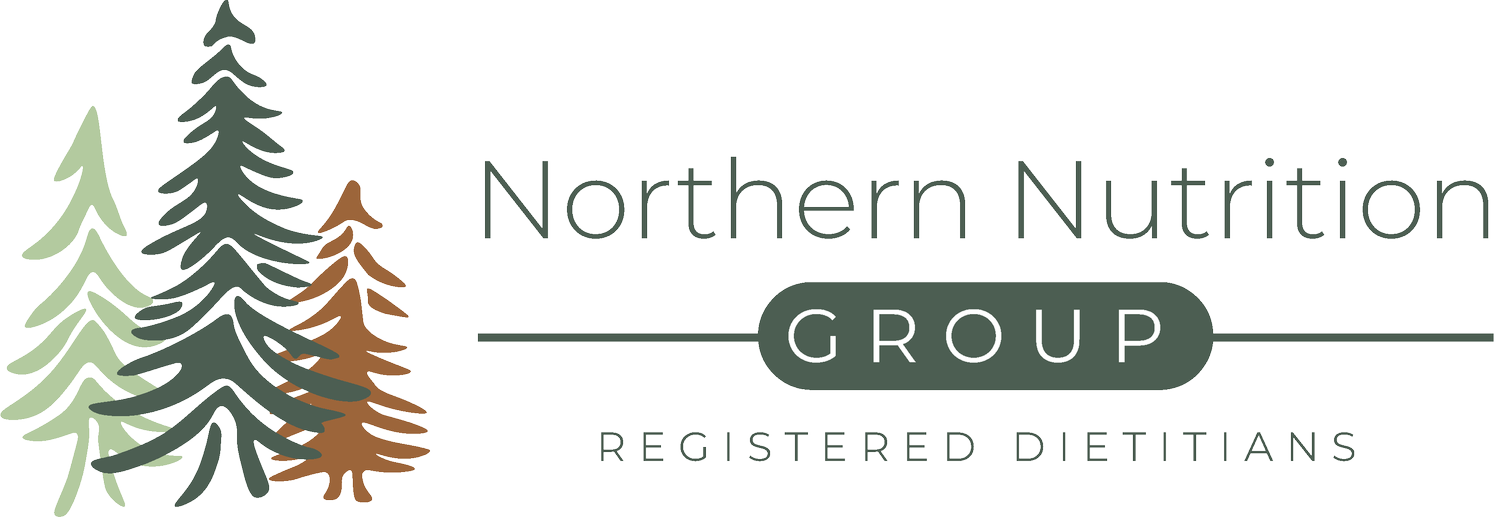Eating Disorder Awareness Week: Breaking the Stigma, Supporting Recovery
Eating Disorder Awareness Week is a time to amplify voices, challenge misconceptions, and remind those struggling that recovery is possible. Eating disorders are not about vanity or willpower; they are complex mental health conditions that affect individuals of all ages, genders, and backgrounds. The more we talk about them, the more we can break down the stigma and create a world where individuals feel safe asking for help.
Our Approach to Eating Disorder Recovery
At Northern Nutrition Group we take a compassionate, evidence-based approach to healing. Recovery is not just changing the way you eat—it’s about rebuilding trust with food, learning to tune in and honor the body’s needs, and unlearning harmful messages about self-worth and physical appearance.
We work closely with individuals to help them:
Develop a Nourishing Relationship with Food – Instead of focusing on rigid rules or restrictions, we emphasize balance, flexibility, and adequacy. We offer support without judgment and understand that recovery is not a linear journey. Recovery often involves rewiring thought patterns, unlearning harmful societal messages, and relearning self-trust and self-compassion.
Address Emotional and Psychological Aspects – Eating disorders are about more than food; they often stem from trauma, anxiety, fear, control, or perfectionist tendencies. Our work goes beyond meal plans to address the deeper struggles behind disordered eating. We collaborate with your mental health providers (or make referrals when needed) to expand the recovery process beyond the scope of nutrition.
Support Individualized Recovery Journeys – There is no one-size-fits-all approach to recovery. Each individual’s process is unique, and our team is committed to facilitating that journey with understanding and personalized care. We rejoice in the small wins, provide compassion when faced with setbacks, and understand that both wins and setbacks are pieces of the recovery process.
How We Can All Support Awareness
Eating Disorder Awareness Week is a reminder that we all have a role in creating a more supportive environment for each other; our friends, neighbors, family members, co-workers, and teammates. Here are a few ways everyone can contribute:
Challenge Diet Culture – Many harmful messages about food and body image are deeply ingrained in our society. By avoiding language that moralizes food (e.g. guilt-free foods, cheat meals, clean eating, etc.) and rejecting unrealistic “health” or beauty standards, we create a more inclusive and body-positive space.
Listen Without Judgment – If someone opens up to you about their struggles, the best thing to do is listen with empathy. Avoid comments about weight, appearance, or eating habits. Encourage them to seek professional support rather than giving unsolicited advice.
Spread Awareness – Many people don’t realize that eating disorders can affect anyone, regardless of size, gender, or background. Before an eating disorder affects an individual’s appearance, they often experience other symptoms of malnourishment such as persistent headaches or lightheadedness, brain fog, increased anxiety and/or depression, fatigue, or inability to regulate body temperature. Sharing accurate information helps combat stereotypes and encourages early intervention.
A Message of Hope
If you or someone you know is struggling, know that recovery is possible. Seeking help is a courageous step toward healing. You are deserving of care, nourishment, and kindness- both from yourself and others. Whether you are just beginning to acknowledge your struggles or have been on this journey for years, know that there is hope—and we are here to help.
Please don’t hesitate to reach out. Healing is possible, and you deserve it!
Written by Kristen Knight, Operations Manager.
Kristen oversees daily operations at Northern Nutrition Group including client coordination, social media, and resource management. Kristen underwent eating disorder treatment in 2018-2019 and advocates for recovery and breaking the stigma associated with eating disorders.
